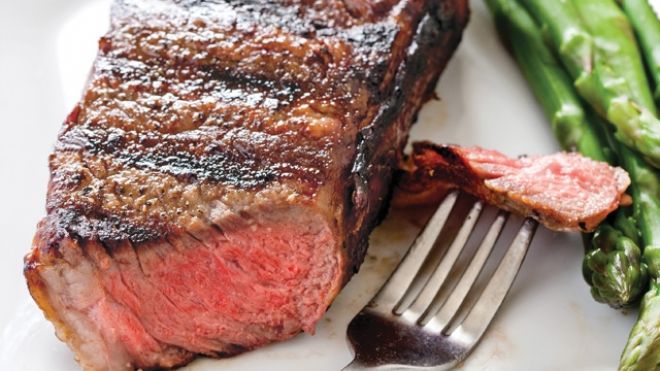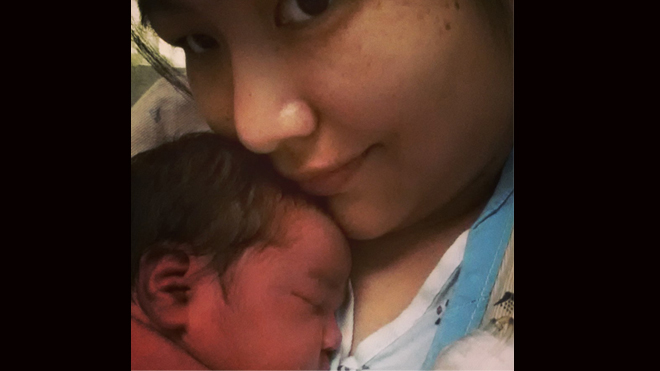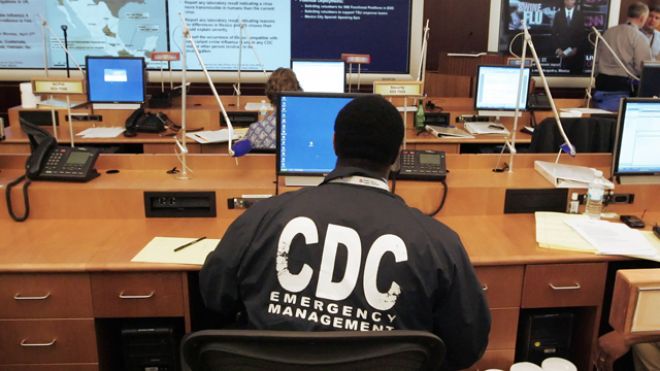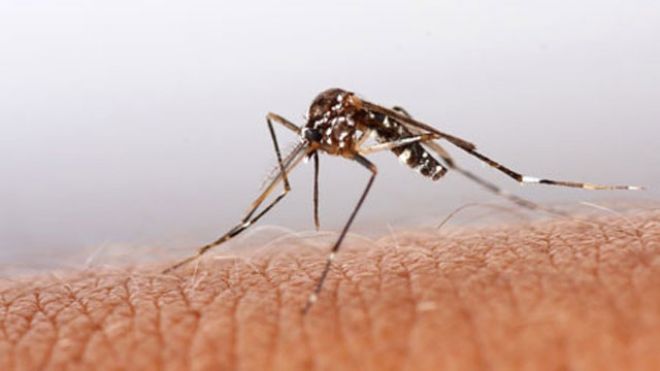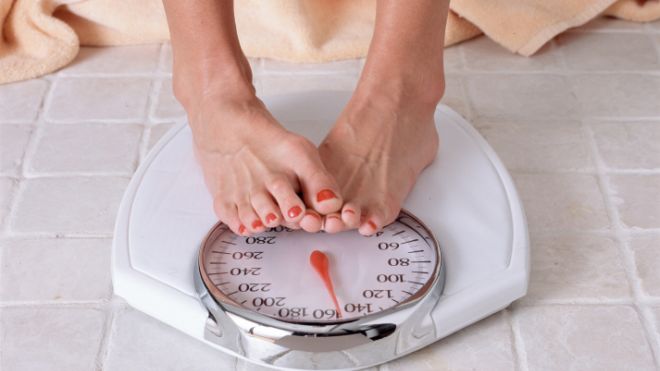
We all fib a little, but telling your co-worker her new haircut looks great (when what you're really thinking is “oh my!”) is pretty harmless. Lying to yourself about your own eating habits on the other hand, can wreak some real mental and physical havoc; and a new study shows it may be pretty common. In my private practice, I make it very clear to my clients that my role is not to scold, berate, or act like a food cop. In fact, it's just the opposite, because fostering an open, non-judgmental dialogue about your relationship with food is the only way to uncover some truths you may be pushing under the rug. And until they're exposed, they're pretty impossible to change. Here are five many of my clients reveal, and why coming clean with yourself can be the answer to finally losing weight—for good. 'I eat when I'm hungry, and stop when I'm full' When reviewing my clients' food diaries, I often see snacks, driven by hunger, just an hour or two after fairly substantial meals–generally a sign that something is out of sync. When I ask, “What did the hunger feel like?” it often turns out to be emotional or social, rather than physical in nature. In other words, there are no bodily symptoms that signaled a need for energy or nourishment, and in truth, many clients know this to be true. One once said, “I realize it's not really hunger, but I fool myself into thinking it is, because I don't know what else to do.” Alternative: The toughest part of recognizing that you want to eat, but not because your body is telling you to, is acknowledging that what you really need has nothing to do with food. But once you do just that, and find other healthy ways to cope with what's really going on (anxiety, relationship issues…), the weight may effortlessly fall off (day after day after day, just 200 surplus calories can keep you 20 pounds heavier). If you don't keep a food diary already, start one, and include not just what you eat and how much, but also your hunger level before and after meals, in addition to your emotions. The revelations may allow you to break the pattern. Health.com: 20 Snacks That Burn Fat 'I'm not a big drinker' I've heard this from many clients who, according to the Centers for Disease Control and Prevention criteria, are chronic binge drinkers (consuming four or more drinks in a two hour period for women, five for men). For some, the self-categorization is justified, because they don't drink during the week, have already cut back, or are comparing themselves to friends who drink a whole lot more. But after some reflection, I often hear sentiments like, “I know polishing off a bottle of wine by myself isn't good, even if it's only on the weekends.” Alternative: For most of my clients, drinking has a domino effect that travels in both directions. Knocking a few back drinks on Saturday night often leads to eating more at dinner, followed by going out to brunch on Sunday, skipping the gym Monday morning, and giving into the office candy dish Monday afternoon.  On the flip side, cutting back on booze often leads to feeling “cleaner,” more in control, and motivated to eat healthier and be more active—changes that can be transformative for both your waistline and health. If you're using alcohol as an emotional crutch, or it's integral to your social scene, reach out to someone you trust. I've had clients break out of this pattern simply by connecting with a close friend or family member who supported their decision to cut back, or stop drinking all together. Health.com: How to Drink Alcohol Without Gaining Weight 'I eat really healthfully most of the time' I often hear this statement right after a client tells me about a decadent vacation, dinner out, or holiday that involved overeating. And while some believe it to be true, many know that on a day-to-day basis, while they don't pig out, they're not exactly earning gold stars, especially when it comes to hitting the mark for veggies, or reaching for whole, rather than refined grains. After acknowledging that she was looking at her diet through rose-colored glasses, one client said, “I think I was giving myself an A when what I really earned was more like a B-.” Alternative: It's OK to admit that you're not perfect, even if you're not perfect most of the time! You can't set concrete goals that will improve your eating habits without coming to terms with how you really eat. For example, if you realize that you eat too much rice and not enough veggies at dinner, flip-flopping the portions (e.g. a half cup of brown rice and one cup of broccoli, instead of the reverse) shaves 20 grams of carbs from your meal. At one meal a day, that's a savings equivalent to walking on a treadmill at four miles per hour for 85 hours. Health.com: Best Superfoods for Weight Loss 'I eat 5 or 6 small meals a day' The operative word here is “small.” Many of my clients who say this are actually eating five full meals, which by today's portion distortion standards, may seem small, but are actually far more than their bodies need. Admitting to this, one client said, “I think I've just gotten used to eating every few hours, or I thought it was the best thing to do, but it's clearly not working for me.” Alternative: Long stretches without eating can lead to rebound overeating, so well timed meals are key. But whether you eat four, five, or six times a day, your body's needs remain the same, which means if you want to eat more often, you must eat less each time you chow. For example, if you need 1,600 calories a day, you can eat: four 400 calorie meals; five 320 calorie meals; or six 266 calorie meals. The latter is a real challenge, because the meals end up being so mini, they don't feel like meals, leading to extra nibbles, which wind up feeding your fat cells. I don't advocate calorie counting, but if you think that too-frequent eating may be an issue, take inventory for a day or two, to gain some perspective. Health.com: 25 Ways to Cut 500 Calories A Day 'I can eat more because I work out a lot' I work with pro athletes and performers, but most of my clients work full time, on top of juggling family and social responsibilities, which often leads to fitting in far fewer workouts than they'd like. When they do hit the gym, they hit it hard, but many get there three days a week, while continuing to eat as if they're starting every day with a workout. One client confessed, “I think of myself as such an active person, but the truth is, it's more wishful thinking than reality.” Alternative: Rather than following the same routine every day of the week, establish a “baseline” eating plan, for non-exercise days, and add to it on the days you workout. Mentally, it's much easier to add to your plate, rather than take foods away, and with a daily regime that doesn't factor in fitness, if you just can't make it happen, you won't stick yourself with a surplus. Cynthia Sass is a registered dietitian with master's degrees in both nutrition science and public health. Frequently seen on national TV, she's Health's contributing nutrition editor, and privately counsels clients in New York, Los Angeles, and long distance. Cynthia is currently the sports nutrition consultant to the New York Rangers NHL team and the Tampa Bay Rays MLB team, and is board certified as a specialist in sports dietetics. Her latest New York Times best seller is S.A.S.S! Yourself Slim: Conquer Cravings, Drop Pounds and Lose Inches. This article originally appeared on Health.com.source : http://www.foxnews.com/health/2013/06/13/5-white-lies-that-stall-weight-loss/
